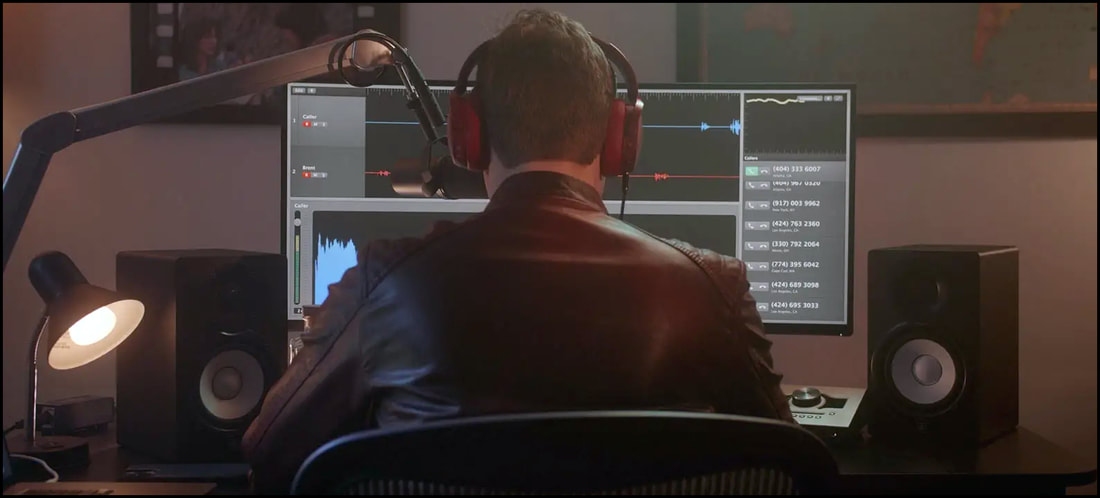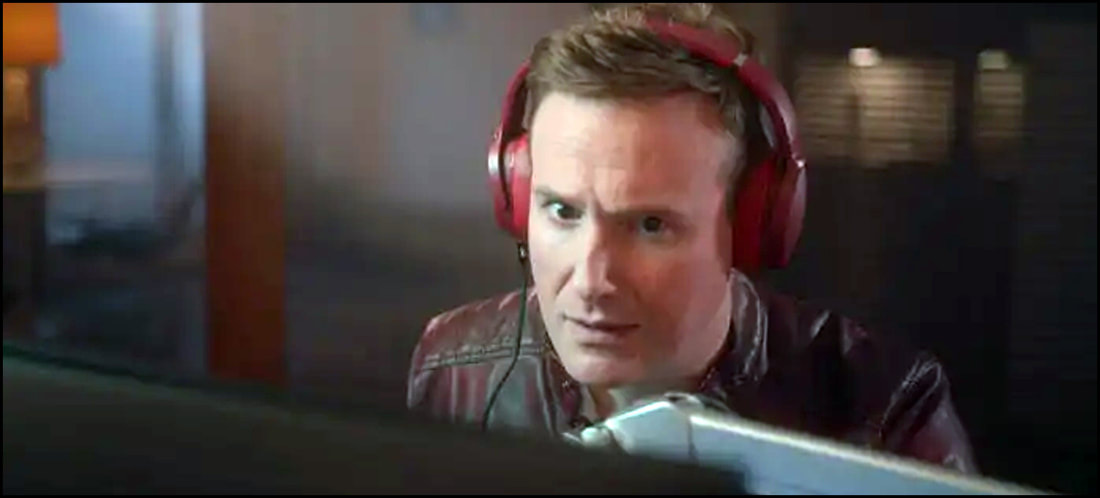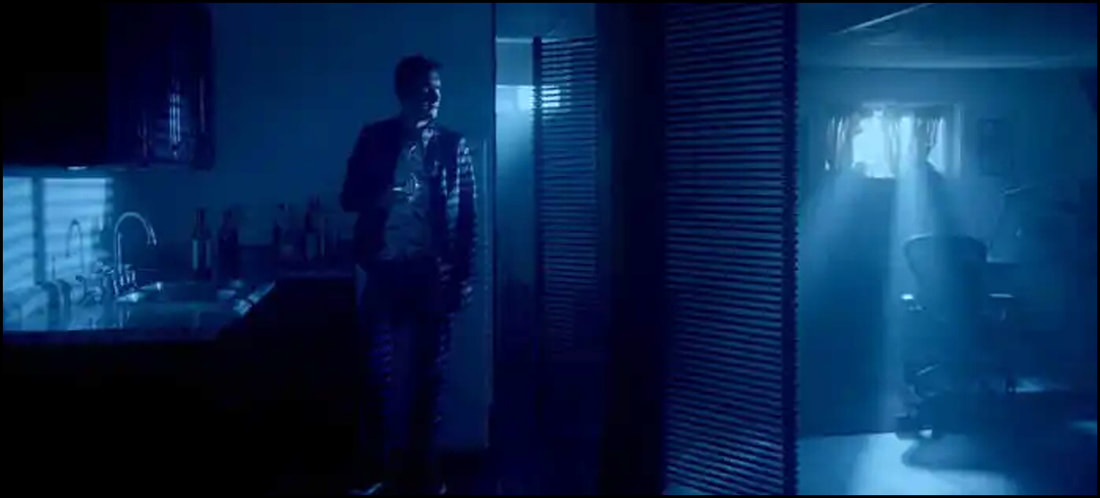In fact, I grew up listening to old time radio shows in my youth when I caught them broadcast on Friday and Saturday nights out of a local radio station in the area. (Yes, yes, and yes: while others were out yucking it up with their friends and beer and cruising the streets, I was happily home curled up with a transistor radio, loving every minute of it.) Such programs have always fascinated me with their ability to convey such a big, big, big tapestry with little more than sound itself – voices, scripts, sound effects, music, etc. – so I relished each chance to experience that fateful alien invasion in radio time. I had taped it on cassette, allowing me to relive mankind’s demise over and over again, and it’s this time of dramatics that continue to inspire me to this day … and likely always will.
When I grew older, I learned that there’s a great deal of fiction and non-fiction surrounding the whole cultural effect that Welles’ broadcast both may and may not have had on society-at-large. It’s long been rumored that its first airing caused major chaos and confusion when folks who tuned in after the fictional set-up actually believed – entirely as a consequence of the production – that Earth was literally under attack from these treacherous visitors from Mars. Just as the media today tends to blow reality out of proportion, a great deal of the aftermath was exaggerated, though I’ll leave readers to their own research to separate the truth from the fiction. My only point in bringing it up here is that the Mercury Theatre On The Air episode was grand and inventive enough to garner such attention from news and print outlets even if it were only intended to warn their customers that tuning to radio for the latest developments might be very bad for their health.
Thankfully, the idea of depicting our world’s destruction in real time has inspired other storytellers to pick up the baton and run with it: 2022’s First Time Caller transports such breaking developments into the modern age of podcasts run amok when one participant to a popular call-in internet show begins prognosticating some dark developments indeed that suggest our civilization has reached a tipping point. Over the course of his telephone calls, calamities begin to mount, the host’s nerves begin to frazzle, and the end of life as we know it emerges effortlessly during the podcast of the living doom … and I cherished a good deal of our downfall just like I did with a kid compliments of Orson Welles.
(NOTE: The following review will contain minor spoilers necessary solely for the discussion of plot and/or characters. If you’re the type of reader who prefers a review entirely spoiler-free, then I’d encourage you to skip down to the last few paragraphs for the final assessment. If, however, you’re accepting of a few modest hints at ‘things to come,’ then read on …)
“Brent Ziff is an internet shock-jock at the top of his game. But on one very unusual night, Brent’s world is rocked by a long-time listener who calls in with a grave message.”
Readers, I hate to break it to you, but “Civilizations fall.” Truer words have rarely been spoken, much less written.
Now, I happen to be one of the web’s biggest fans of Apocalypse-style thrillers (at least by my own estimation, that is). Be it the overly aggressive alien invasions, pole shifts, climate disorders, or meteor impacts, I love it when a plan comes together that spells our collection doom; and I’ve enjoyed a great number of such yarns ever since I began watching films back in the days of my distant youth. Simply put: nothing brings my heart greater joy than the resulting tumultuous chaos of our End Times, and a good deal of First Time Caller left me giddy with delight over the slow burn of its 75-minute running time.
Brent Ziff (played by Abe Goldfarb) is the host of a podcast program that – curiously enough – seems to have a right-minded political appeal though his tactics are decidedly Leftist/Progressive in nature. (Frankly, I could dispute how this fictional pundit could ever get legitimate right-wingers to follow him en-masse – at least, that’s what I took from the story – but I’ll quiet the politics in order to give preference to the real thrust of the tale.) His approach appears to, essentially, spend the breadth of his broadcast day lampooning life itself – as well as a good number of his callers and/or listeners – and somehow, he’s finally broken through the collective noise to have a bona fide hit show. Brent is finally on top of the world, and he’s loving the place he’s found himself in.
But into his personal utopia one day comes a caller: Leo Short (Brian Silliman) initially seems like any one of his internet followers – a bit brash, a bit of a buffoon, etc. – and, yet, he’s got a secret he can no longer keep. It would seem that Leo – aka Shorty – has found out a way to listen to Mother Earth itself, and she’s let him in on a slew of natural disasters that are going to unfold in real time – during Ziff’s online show, in fact – and this gives the caller a chance to find his time in the cultural spotlight. At first, Brent suspects he’s found himself one more loon to exploit as part of his programming; yet when Shorty’s unpredicted tsunamis start attacking America’s shorelines, it would seem that the weird man is the real deal.
Like any good yarn that feels inspired by the ‘what ifs’ of one of television’s most popular shows ever – The Twilight Zone – Caller both postulates this existence and manages to ‘stick the landing’ of its bizarre predicament. The world? Why, she’s a changin’, and celebrity Brent Ziff unexpectedly finds himself on the front lines of this crazy timeline. Before the day his done, he may’ve lost his show, his family, and his technology, but he’s found a new best friend in the guise of Leo Short who, presumably, shows up at his front door – smack dab in the middle of the Apocalypse – to begin their new partnership in what remains of our fallen society. Thematically, Mac Rogers’ script – when it sticks as close to the construct as possible – works like a charm.
My issues with ‘the rest of the story’ is just that: ‘the rest of the story’ is that Caller kinda/sorta fudges a few lines that it didn’t really need to cross.
For example, a great deal of the adventure feels like it’s intended to be an indictment of right-wingers, MAGA followers, Q Anon types, and Conservatives in general. The sad truth to this sub-culture’s reality is that, quite frankly, they’ve been right about their conspiracies perhaps far more than they’ve been wrong – yeah, I said what I said, so deal with it – so I’m not sure why all involved felt the need to chastise anyone. As I’ve already mentioned above, the kind of person that Brent Ziff pretends to be for the purposes of his personal success very likely wouldn’t attract such an audience, so the condemnation here feels a bit misinformed … as is much of the (cough cough) mainstream media. (Yeah, I said that, too, so deal with that, as well.) Besides, I think it’s the institutional Left that is currently predicting the end of life as we know it if Donald Trump returns to the White House, so … ?
I know, I know, I know. Crickets when you point out a fact.
Lastly, Caller kinda/sorta revels in a measure of what I’ll simply call … erm … soft vulgarity. I make it my business to avoid spoilers as much as possible, but there’s a bit of toilet humor in here that – although it might occasionally be funny – just feels thematically misplaced. It isn’t as if we’re culturally immune to potty humor being popular with the masses; my point is that it kinda/sorta goes on a tad longer than it was absolutely necessary in here, and I measure of restraint might’ve made this one resonate more strongly with a wider audience. Granted, time will tell – Caller has the intellectual stuffing to be a sleeper hit as well as a potential cult favorite, especially for fans of Apocalypse stuff – but it’s much too early … and I’m not prone to prognostic the way Shorty does so effortlessly … well … the truth is there is some strain. (Sorry. I couldn’t help myself. Maybe the potty humor was necessary, after all.)
What I’ll fundamentally always remember about the film is something I’ve always tried to instill in folks I’ve met along the merry path through life: despite the level of marvel all of our technological conveniences have given us over the years, nothing will ever truly prepare us for the end of the world.
First Time Caller (2022) was produced by Cinedata and Gideon Media. According to the publicity materials I’ve been provided, the film will be available via Digital and Streaming (on a variety of platforms) on January 12, 2024. As for the technical specifications? While I’m no trained video expert, I thought that the sights-and-sounds were exceptional; this is, largely, a single-set production (there are some sequences drawn from outside Ziff’s home, but the vast majority involve the man seated before his podcasting set-up and little else.) If you’re looking for special features? I was provided complimentary streaming access to this, so I had no special features to consider.
Highly recommended.
Though I’m no fan of visual trickery that pulls me out of the theatrical experience (of which this production has a few), so very much else of First Time Caller (2022) feels like an authentic, real-time experience. If that’s the kind of thing that pulls you in, then you’re there … just try to ignore the digital inserted trickery when it rears its head. The central flaw to the script as presented is that – per George’s prognostications – these two will be the kinda/sorta leaders of what’s left of society after its downfall … but how? Without the technology that built Brent into the social media giant he’s become, he’s reduced to just a regular Joe, and the film ends with absolutely no expectations presented for its recovery.
In the interests of fairness, I’m pleased to disclose that the fine folks at Cinedata provided me with complimentary streaming access to First Time Caller (2022) by request for the expressed purpose of completing this review. Their contribution to me in no way, shape, or form influenced my opinion of it.
-- EZ




 RSS Feed
RSS Feed